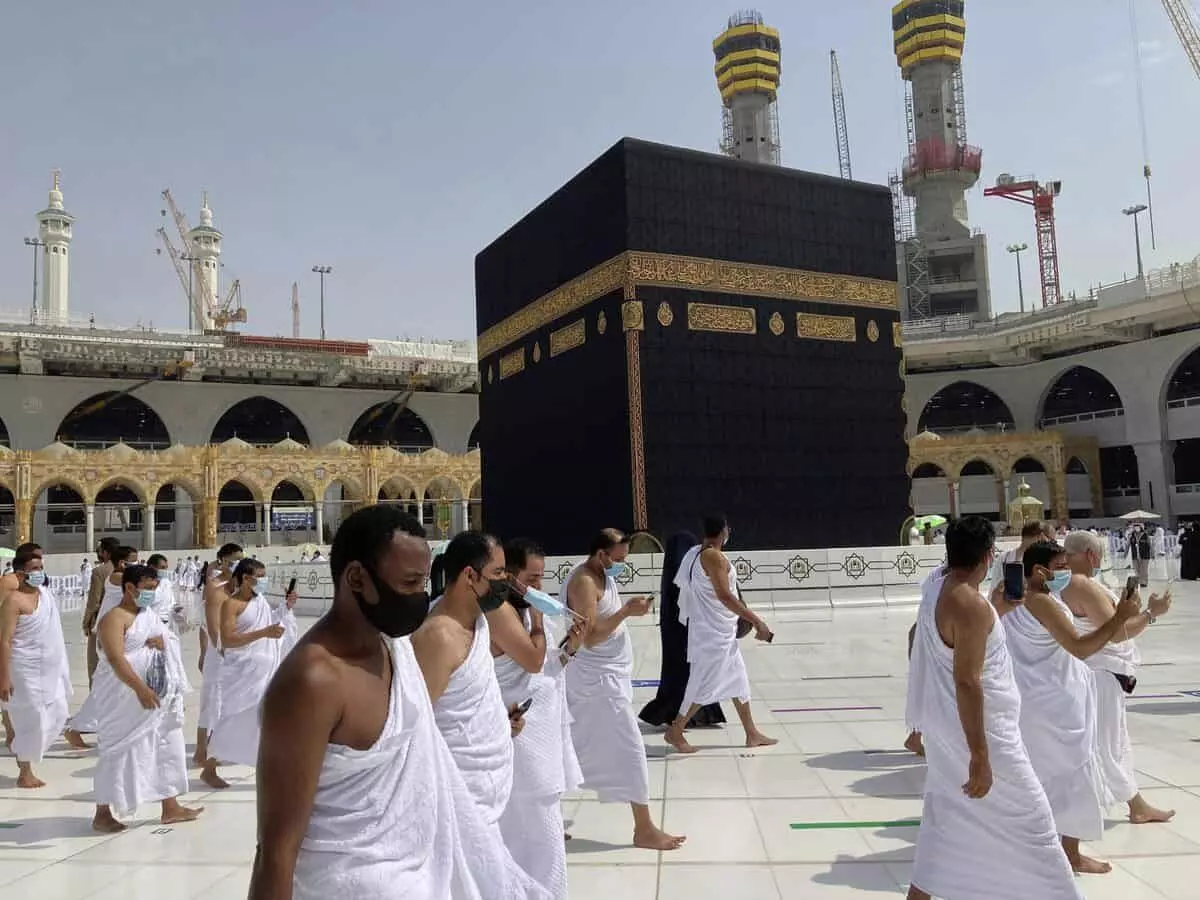The recent statement regarding visa waivers for the European Union (EU), the United Kingdom (UK), and the United States made by the Saudi Ministry of Hajj and Umrah is a big step in the right direction towards making the Umrah pilgrimage procedure easier. This effort intends to streamline the administrative procedures involved in pilgrimage while improving the pilgrim experience, in line with Saudi Arabia's Vision 2030 objectives.
Saudi Arabia enables more people to do the holy Umrah pilgrimage by facilitating the process and allowing qualified persons from certain regions to do so without requiring a prior visa. Accessibility is further encouraged by the decision to grant visa-on-arrival privileges to the visa holder's first-degree relatives, whether for religious or travel-related reasons. This inclusiveness shows how dedicated the Kingdom is to meeting the many requirements of both guests and pilgrims
Planning a pilgrimage is made simple by the use of technology, such as the Nusk app, which provides travelers with efficiency and ease. Furthermore, the option to make reservations immediately upon arrival accommodates individuals who might want more flexible travel schedules. Furthermore, the government's commitment to making travel easier for Muslims around the world is demonstrated by giving transit visa holders flying on Saudi airlines the opportunity to conduct Umrah.
Islam's Umrah, sometimes known as the "lesser pilgrimage," is a highly significant spiritual journey that enables believers to pursue spiritual blessings and a closer relationship with Allah. In contrast to the Hajj, which has set dates, Umrah is conducted all year round, giving people the freedom to start this spiritual trip whenever it is most convenient for them.
Moving ahead, Saudi Arabia remains to place a high priority on the comfort and well-being of pilgrims as plans are in place for the expected Hajj in June. The reality that more than 13.5 million Muslims have made the Umrah pilgrimage highlights the significance of these programs and their positive impact on helping millions of believers achieve their religious responsibilities. In the end, these initiatives support the development of spiritual contentment and a sense of togetherness among Muslims worldwide.
Saudi Arabia enables more people to do the holy Umrah pilgrimage by facilitating the process and allowing qualified persons from certain regions to do so without requiring a prior visa. Accessibility is further encouraged by the decision to grant visa-on-arrival privileges to the visa holder's first-degree relatives, whether for religious or travel-related reasons. This inclusiveness shows how dedicated the Kingdom is to meeting the many requirements of both guests and pilgrims
Planning a pilgrimage is made simple by the use of technology, such as the Nusk app, which provides travelers with efficiency and ease. Furthermore, the option to make reservations immediately upon arrival accommodates individuals who might want more flexible travel schedules. Furthermore, the government's commitment to making travel easier for Muslims around the world is demonstrated by giving transit visa holders flying on Saudi airlines the opportunity to conduct Umrah.
Islam's Umrah, sometimes known as the "lesser pilgrimage," is a highly significant spiritual journey that enables believers to pursue spiritual blessings and a closer relationship with Allah. In contrast to the Hajj, which has set dates, Umrah is conducted all year round, giving people the freedom to start this spiritual trip whenever it is most convenient for them.
Moving ahead, Saudi Arabia remains to place a high priority on the comfort and well-being of pilgrims as plans are in place for the expected Hajj in June. The reality that more than 13.5 million Muslims have made the Umrah pilgrimage highlights the significance of these programs and their positive impact on helping millions of believers achieve their religious responsibilities. In the end, these initiatives support the development of spiritual contentment and a sense of togetherness among Muslims worldwide.


No comments:
Post a Comment